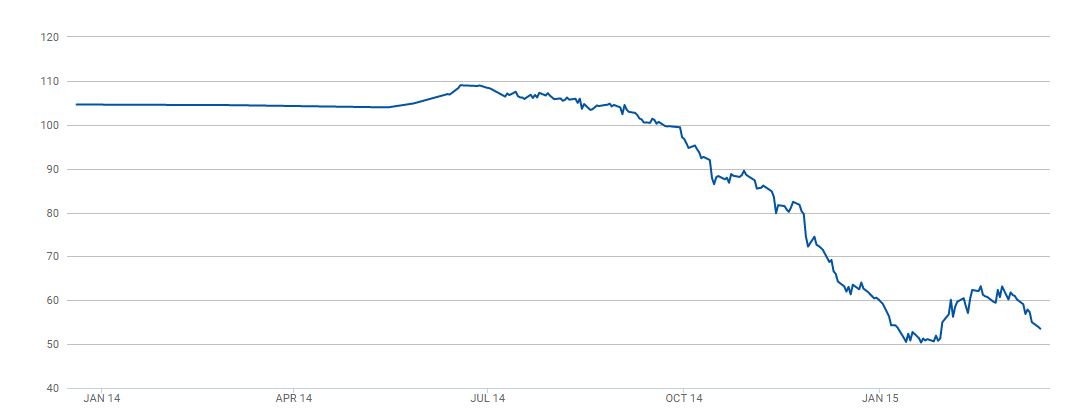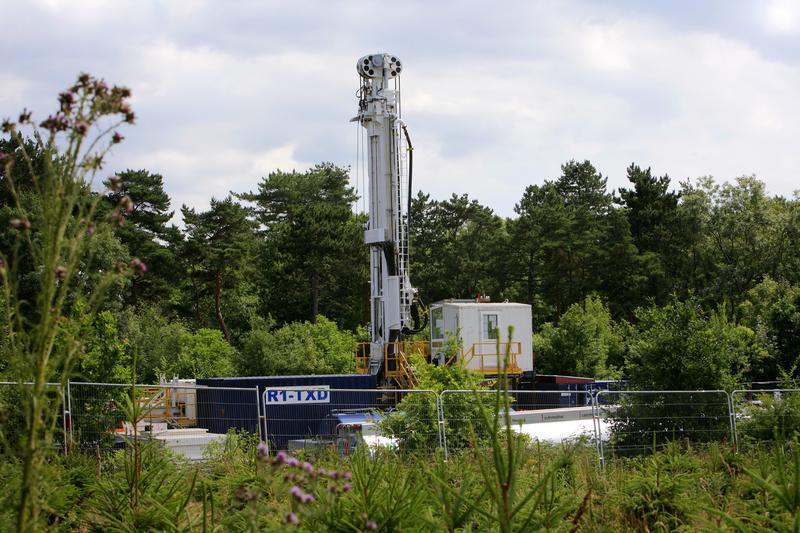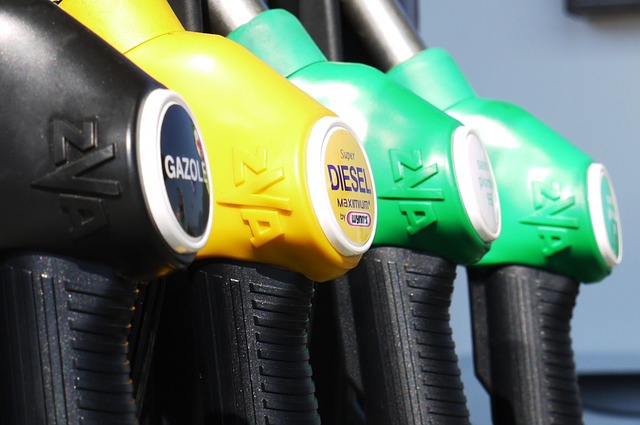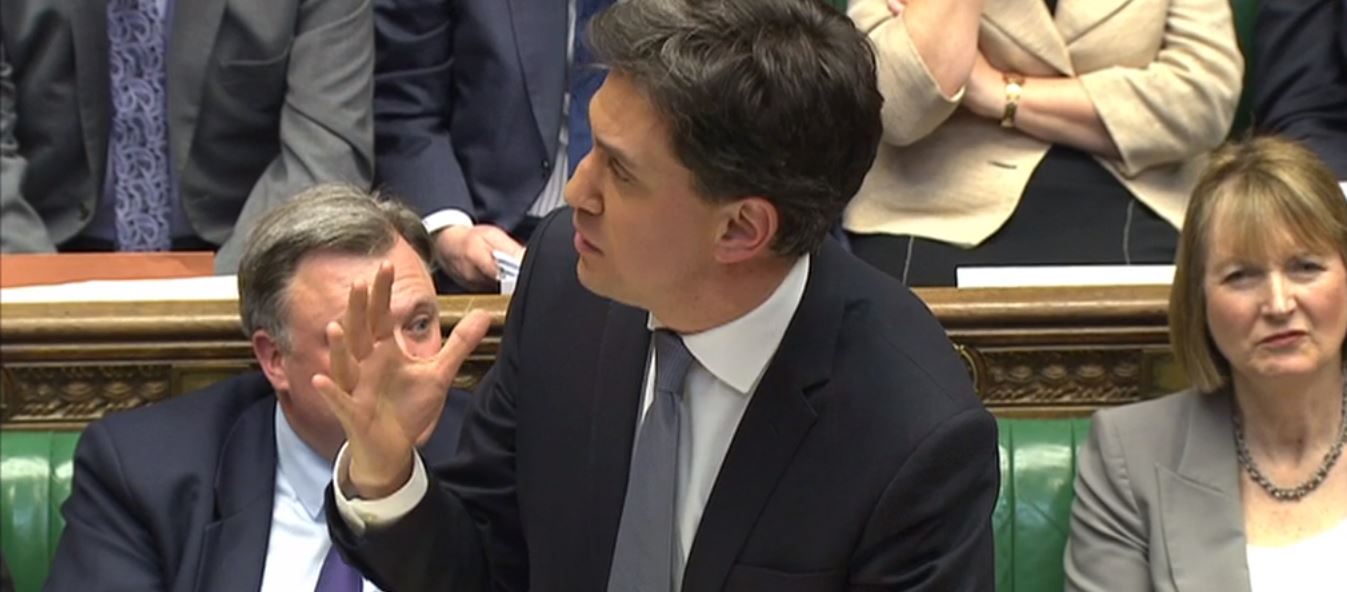Five energy things we learned from George Osborne’s 2015 Budget

For the fifth year and final year of this government’s term, chancellor George Osborne rocked up to the House of Commons, iconic red briefcase in hand.
In the day’s rabble-rousing back-and-forth, the country’s energy agenda for the coming year was outlined.
Here’s what it looked like:
1) Oil price crisis may be ‘good for families’ — but North Sea oil was bailed out
The crash in oil prices (shown below) has been the biggest development since the Autumn Statement, Osborne said.
Despite the chancellor’s insistence that low oil prices are good for UK consumers, he also said the commodity’s volatility and vulnerability has the potential to reverse recent economic gains — both in the UK and around the world.

Thus the government’s long-touted tax relief for troubled North Sea oil and gas operations was the centrepiece of this year’s budget, with Osborne extolling the virtues of the sector’s £1.3 billion package.
There was a 10% cut from in the supplementary charge on profits down to 20%, and backdated to January, which essentially undid the tax increase Osborne introduced four years ago when the energy business was booming.
Petroleum revenue tax will also be taken down to 35% from 50%, and £20 million invested towards offshore exploration.
The coalition has overseen the biggest fossil fuel boom since the 1970s, according to a Guardian report published on the day.
Read our series: The Oil Price Crisis

2) Fracking takes backseat before the election
The UK still-nascent shale gas sector – for so long the energy apple of the coalition’s eye – didn’t get a look in during Osborne’s big speech.
The word ‘shale’ was used just once in the budget document, despite Scotland announcing a fracking moratorium earlier this year, and the Welsh National Assembly opposing operations in their country.
Meanwhile fracking firms have struggled to get planning permission in Sussex and Lancashire.
It’s safe to assume, what with the delay of the 14th licensing round announcements till after the election, that fracking is not viewed as a vote winner; it’s still very much part of the government’s plans though.
Read our series: Fracking in the UK

3. Renewables glossed over, but investment forthcoming
On the front page of this morning’s Guardian was news that the government is negotiating the construction of a £1 billion tidal energy project in Wales.
Swansea bay’s maybe-Tidal Lagoon wasn’t afforded the same stature by the Chancellor, who made just a ‘blink-and-you’ll-miss-it’ mention.
One mention of ‘shale’ in the whole #Budget2015 document, seven ‘renewable’, nine ‘carbon’
— Will Nichols (@WillN_BG) March 18, 2015
There were also measures announced to encourage the uptake of low-emission vehicles.
Though the government is increasing company car tax slower on electric cars and plug-in hybrids, the FT said the sector is disappointed funding for the charging infrastructure wasn’t offered.
Read our series: Energy Futures

4. Fuel duty freeze an extension of recent energy bills policy
Since Ed Miliband’s proposed energy-price freeze 18 months ago, both major parties have advocated especially vociferously for reduced bills.
Earlier this month, driven by political pressure and falling oil prices, major providers such as E.On and British Gas cut the consumer energy costs.
George Osborne’s pledge to freeze the fuel duty – for £10 savings per tank – fits in with this populist move, capitalising on low wholesale energy prices to pass savings on to consumers.
Read more: The coalition’s green record — budget by budget

5. Climate change ignored, except by Ed Miliband
With the momentous Paris UN summit scheduled for later this year, the coalition made no mention of climate change in his budget speech.
Labour leader Miliband corrected this, accusing the Chancellor of being a “particularly malign” influence on climate policy.
He said: “You can’t put a wind turbine on your roof, and then declare a moratorium on wind turbines.”
Read our series: Climate Talks — the Build-up to Paris

